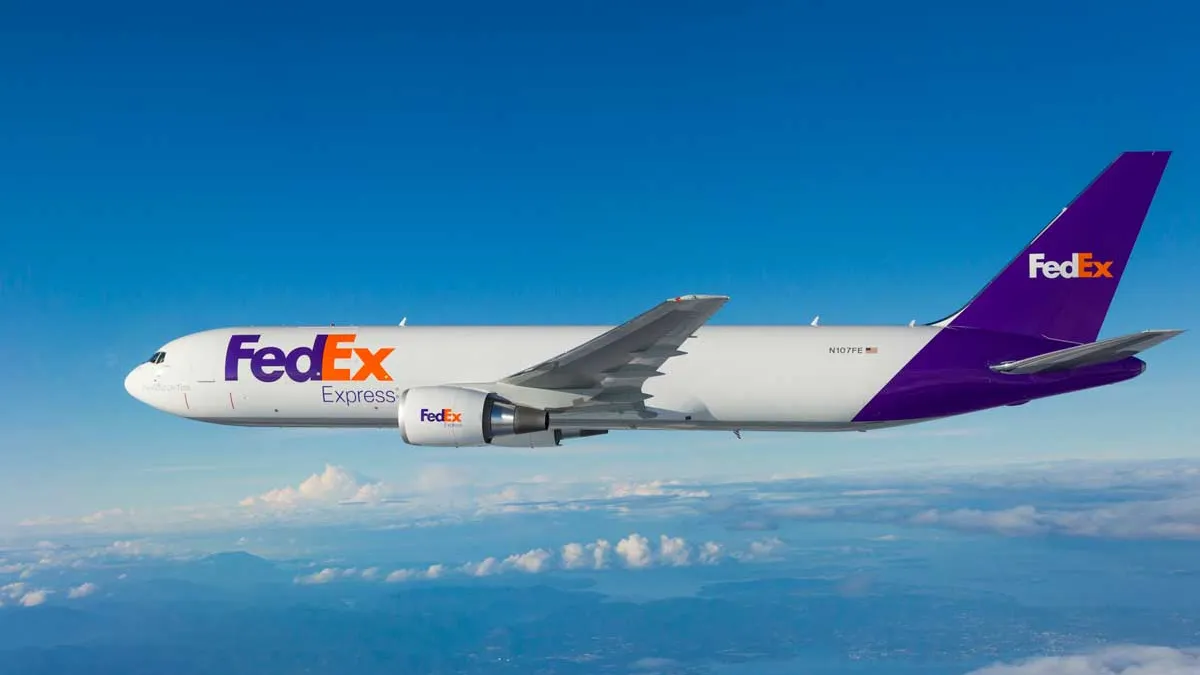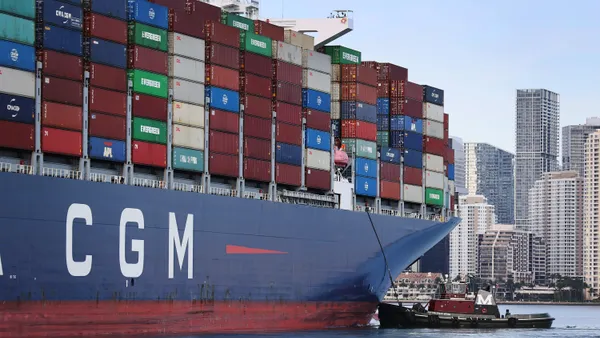Dive Brief:
- FedEx will transfer select residential Express parcels to its Ground network for the last mile, according to a company announcement Friday. The operational shift will begin in March in Greensboro, North Carolina, and expand to other markets later in the year.
- With the move, FedEx aims to reduce the number of Express and Ground trucks delivering parcels on duplicate routes and increase parcel density and profitability for e-commerce deliveries.
- The carrier has resisted such a shift in the past "saying that it wouldn’t work given the different service requirements for Express and Ground, which makes it interesting that they are now dipping their toe in this water," Morgan Stanley analysts wrote in a research note shared with Supply Chain Dive. FedEx Express will contract with Ground for some last-mile deliveries but the two services will remain separate entities, according to FedEx's release.
Dive Insight:
Integrating Express packages into Ground delivery operations is part of FedEx's strategy to innovate for efficiency. Higher parcel density means drivers can run more deliveries with fewer trucks, thereby saving costs and optimizing routes.
"While our residential e-commerce revenues are much smaller than our business-to-business revenues, it is the fastest growing market and requires constant innovation to make delivery to consumers more flexible, convenient, efficient and cost-effective," FedEx stated in its 2019 annual report.
FedEx is working to capture additional e-commerce parcel volume share after parting ways with Amazon, and has focused elsewhere in the retail sector, including the growing returns market, and expanding its parcel pickup services in brick-and-mortar stores around the country.
When FedEx announced its transition to seven days a week, year-round delivery (which went into effect in January) it also announced the integration of SmartPost parcels, traditionally handed off to the U.S. Postal Service for the last-mile, into FedEx Ground operations.
FedEx ran into trouble during peak season as an unexpectedly large volume influx drove up costs and the realities of operating a seven day delivery service cut the company's margins by 50% for the the quarter ending Nov. 30, 2019. Cost per piece increased by 6% while revenues remained largely flat.
The steady growth of e-commerce parcel volume and residential deliveries has driven carriers to get more creative about balancing loads efficiently to keep costs in check. "Improving residential package density is a key aspect of [our] grand strategy to combat residential delivery costs challenges," FedEx CFO Alan Graf said on the company's earnings call.
Morgan Stanley analysts "do not believe this will have a meaningful impact on numbers," they said in a research note. "We note that B2C only accounts for ~30% of volumes at Express and the largest volume product within Express (Overnight Priority) will continue to be delivered by Express, impacting only a small portion of volumes" roughly 10%.













